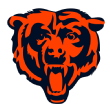It has been a very, very bad start for the Miami Dolphins, who have been outscored 102-10 in their first two losses to Baltimore and New England. To add insult to insult, both games were at home.
Is this the worst start in the history of the NFL? Football Outsiders' DVOA rating suggests that this is at least the worst start in the modern history of the NFL. DVOA breaks down play-by-play to look at how well teams play adjusted for situation and opponent (explained more here). We have that play-by-play data back to 1986, and sure enough, the 2019 Dolphins find themselves among the 10 worst teams of the past 34 seasons through two games.
We went back and looked at the 10 worst teams ever measured by DVOA through Week 2 and then looked at what those teams did the rest of the season. What we found was that a dismal start does not necessarily doom a team to a dismal season. Most of these teams ended up playing close to preseason expectations. One even outperformed expectations and went to the playoffs, despite a two-game start in the same range as Miami's. But none of these teams had preseason expectations as low as those for the 2019 Dolphins.
A couple of caveats before we count down the 10 worst starts: Although DVOA normally includes adjustments for opponent strength, those adjustments are not included in the first three weeks of the season, so they aren't accounted for in these ratings. We aren't including teams before DVOA exists, so you won't find the 1961 Raiders, who lost their first two games by a combined score of 99-0. Also, the worst Week 1-2 results by DVOA will not quite be the same as the worst Week 1-2 results by other measurements. For example, the 2011 Kansas City Chiefs lost their first two games by a combined score of 89-10 but they were only 12th on our DVOA list.

10. 2003 Chicago Bears: -88.3% DVOA
49-7 loss at 49ers; 24-13 loss at Vikings
Expectations: The 2002 Bears collapsed from 13-3 to 4-12, so there was some expectation of a rebound in 2003. The preseason over/under was 7.5.
Weeks 1-2: Most of the negative DVOA value for the Bears came in a Week 1 annihilation at the hands of the San Francisco 49ers. The 49ers outgained the Bears 391-127 and had a plus-three turnover margin. Dick Jauron decided to start offseason pickup Kordell Stewart -- did you even remember his year in Chicago? -- over veteran Chris Chandler and first-round rookie Rex Grossman. Stewart was a miserable 14-for-34 in the first game, with 95 yards plus three picks (one was a pick-six) and five sacks. Halfbacks Anthony Thomas and "the other" Adrian Peterson combined for 27 yards on 11 carries. Things would have been even worse except the San Francisco offense bogged down in the red zone, and Jeff Chandler kicked five field goals of fewer than 30 yards.
Stewart started again in Week 2 and was barely any better: 13-for-21 and 137 yards with three sacks. At least he had no interceptions in Week 2. The Bears did a good job of covering Randy Moss, limiting him to 27 receiving yards, but Daunte Culpepper competed 20 of 26 mostly short passes, and the Bears' run defense gave way, allowing the Vikings 39 carries for 202 yards.
What happened next: The Bears started 1-5, with their only win coming by three points at home against the collapsing post-Jon Gruden Oakland Raiders. Then the Bears turned things around and started winning, and they finished the season 7-9. The 2003 Bears' passing game was dismal all season, with a rotating quarterback carousel, and finished dead last in passing DVOA. But the running game and the defense rebounded to be league average. With rookies Lance Briggs and Charles Tillman joining third-year starter Brian Urlacher, the Bears were starting to build a defense that would eventually get to the Super Bowl.

